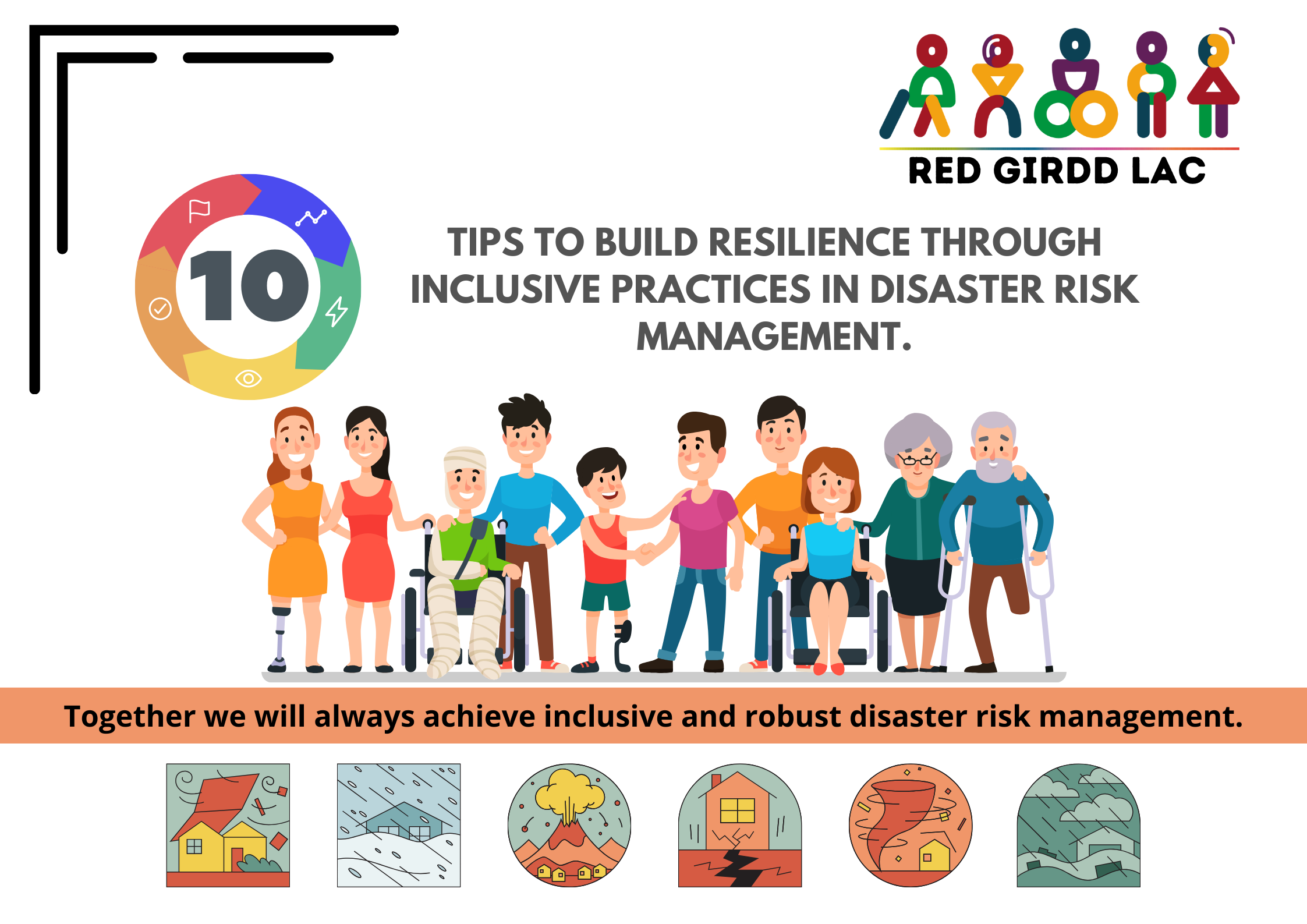In a world marked by the frequency and intensity of disasters, community resilience stands as a fundamental pillar to mitigate the devastating impact of such events. However, for resilience to be genuine and effective, it must be inclusive, encompassing the diverse realities and needs of all people in a community.

The following ten tips offer a comprehensive approach to building resilience through inclusive practices in disaster risk management. From the active participation of all stakeholders to the establishment of networks of resilient leaders, these recommendations are based on the premise that inclusion is not only an ethical principle, but also an effective strategy to strengthen response and recovery capacity against to emerging challenges.
Based on research, the experiences of renowned organizations and the specific needs of different communities, these councils seek to provide a solid framework so that risk managers and communities can work together towards a safer and more equitable future for all.


